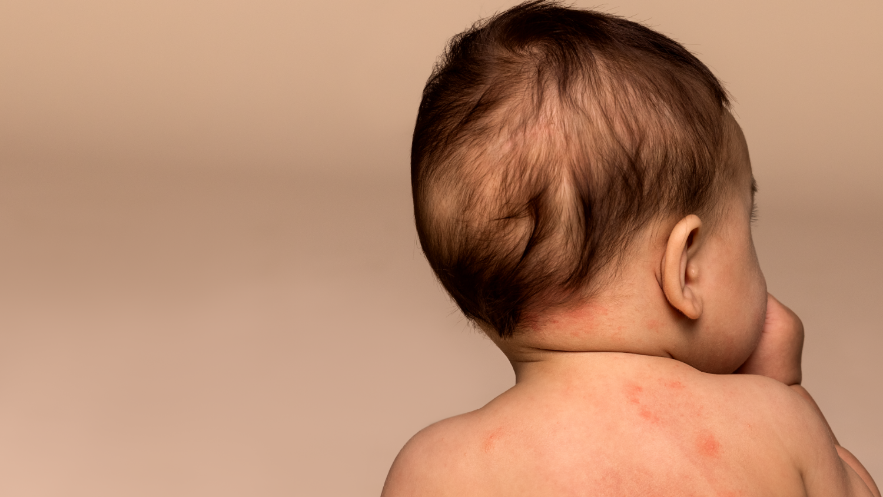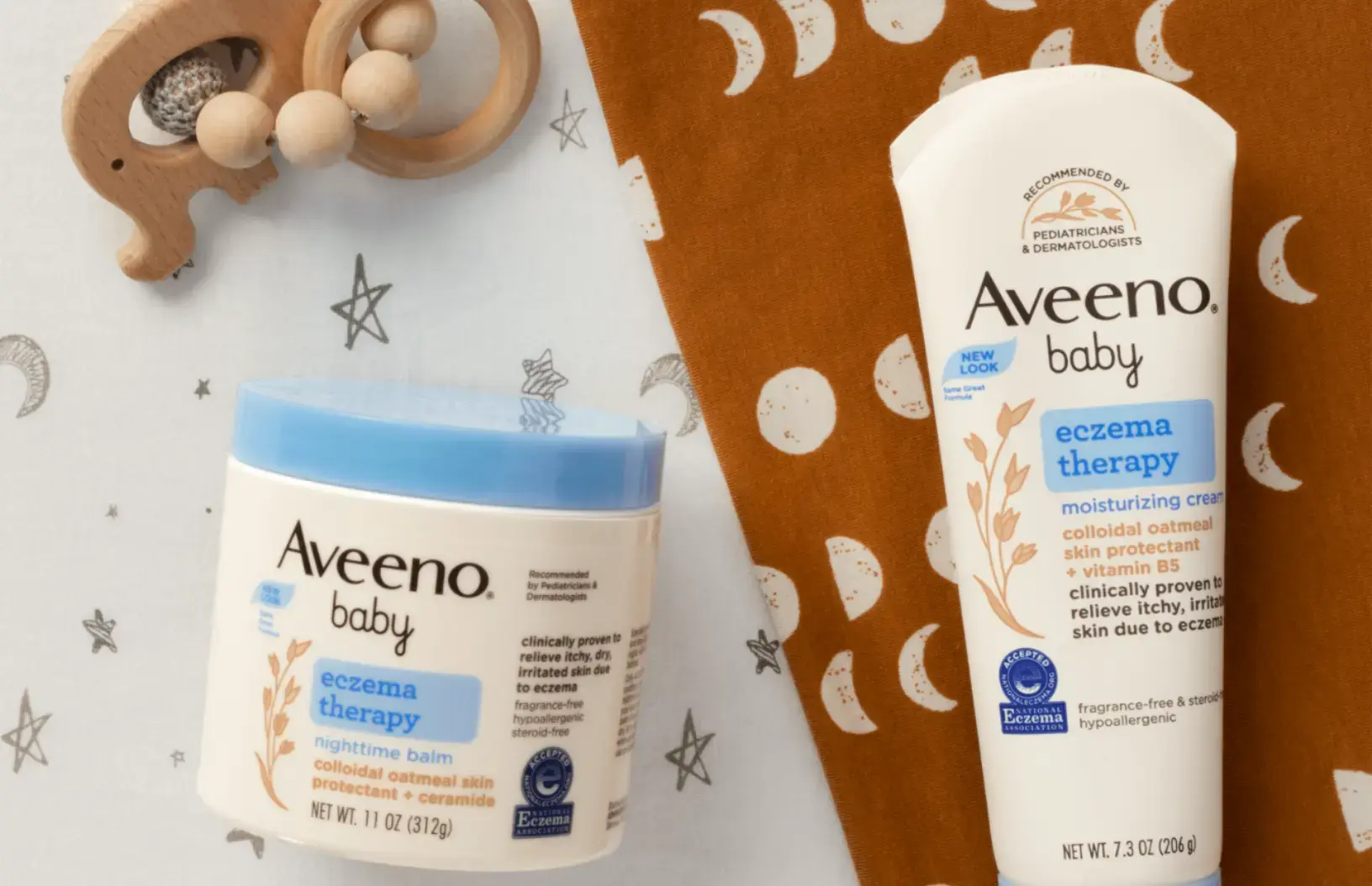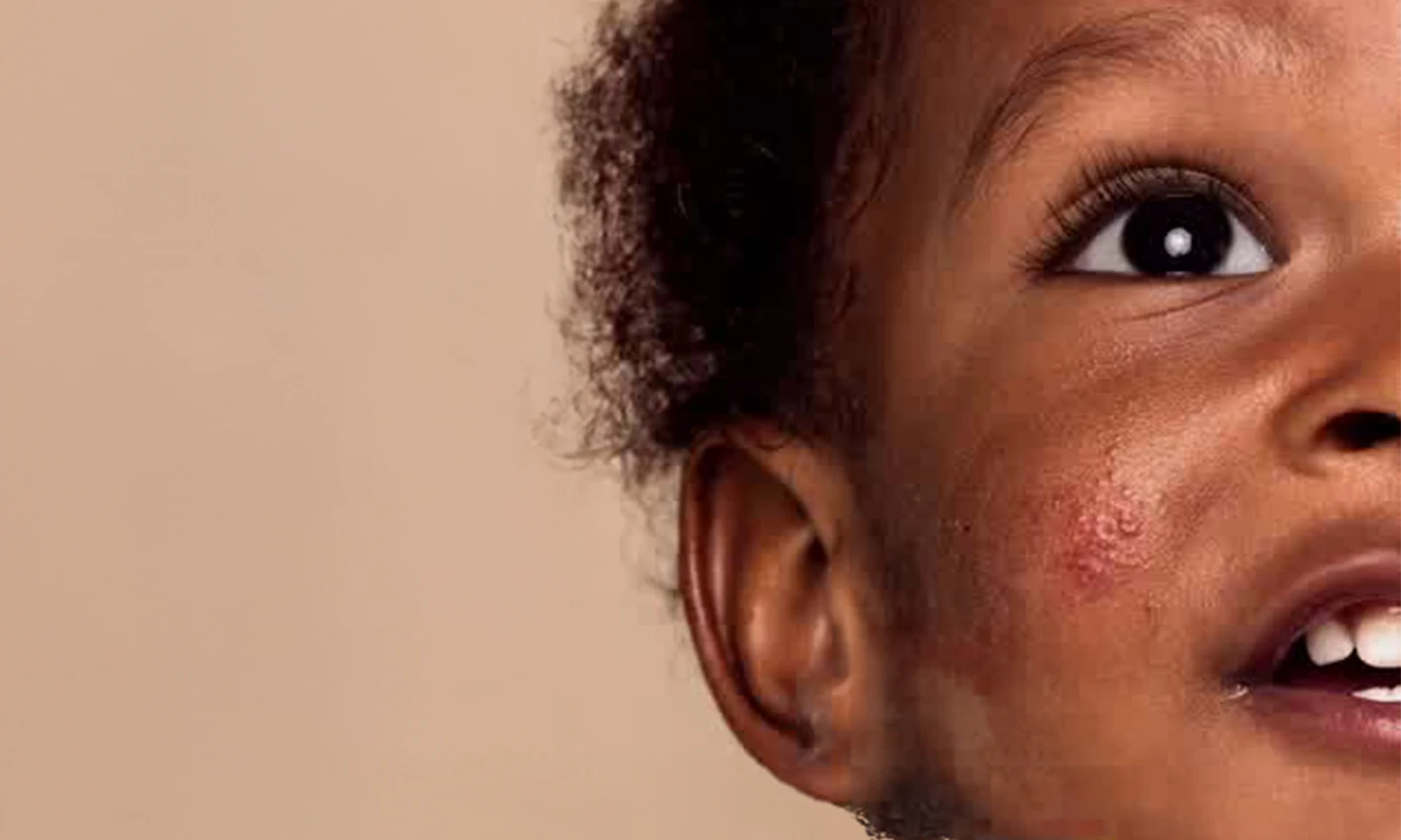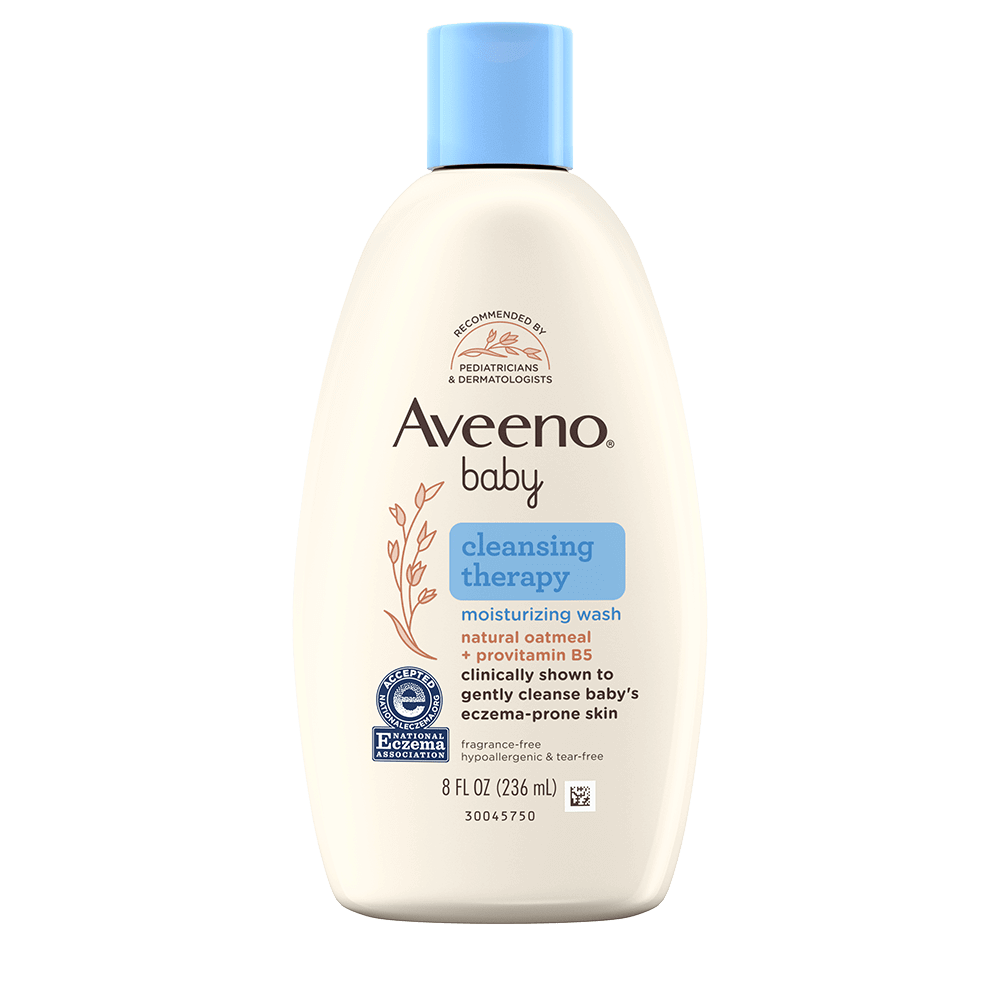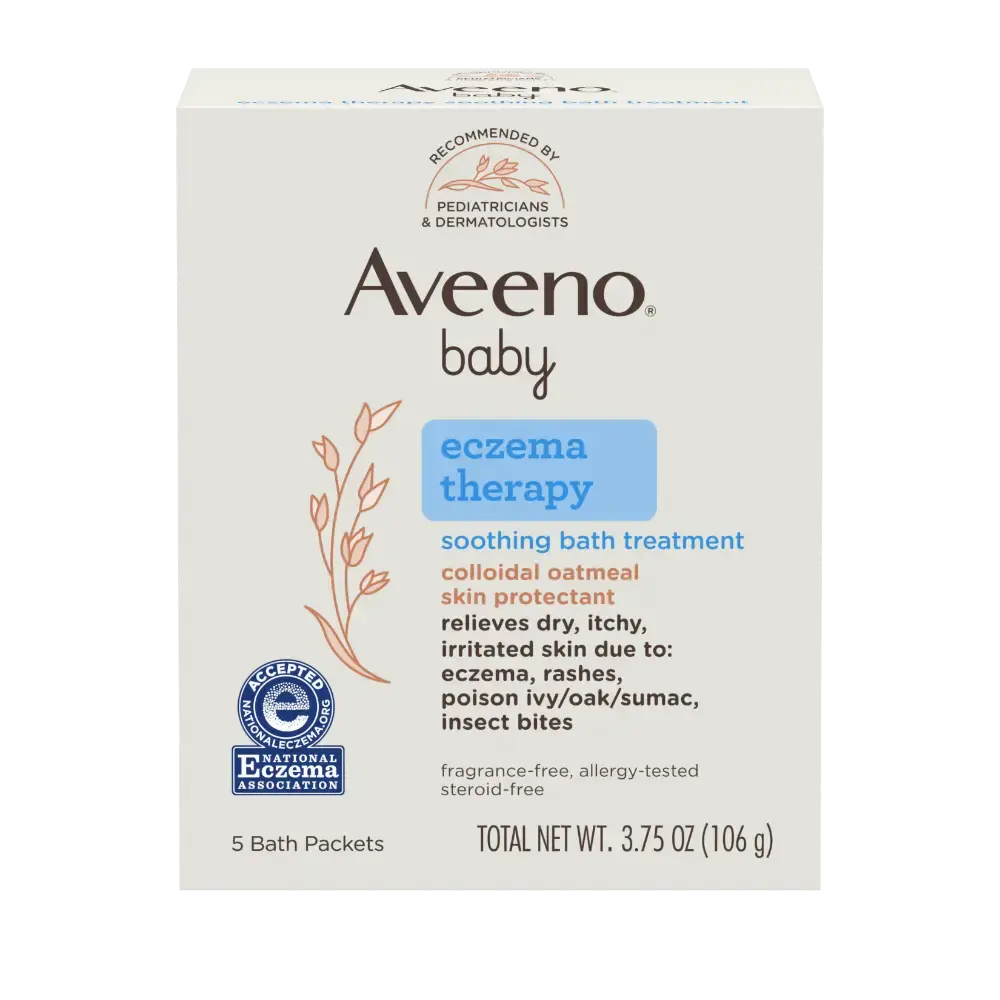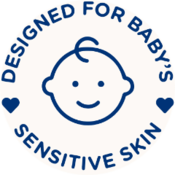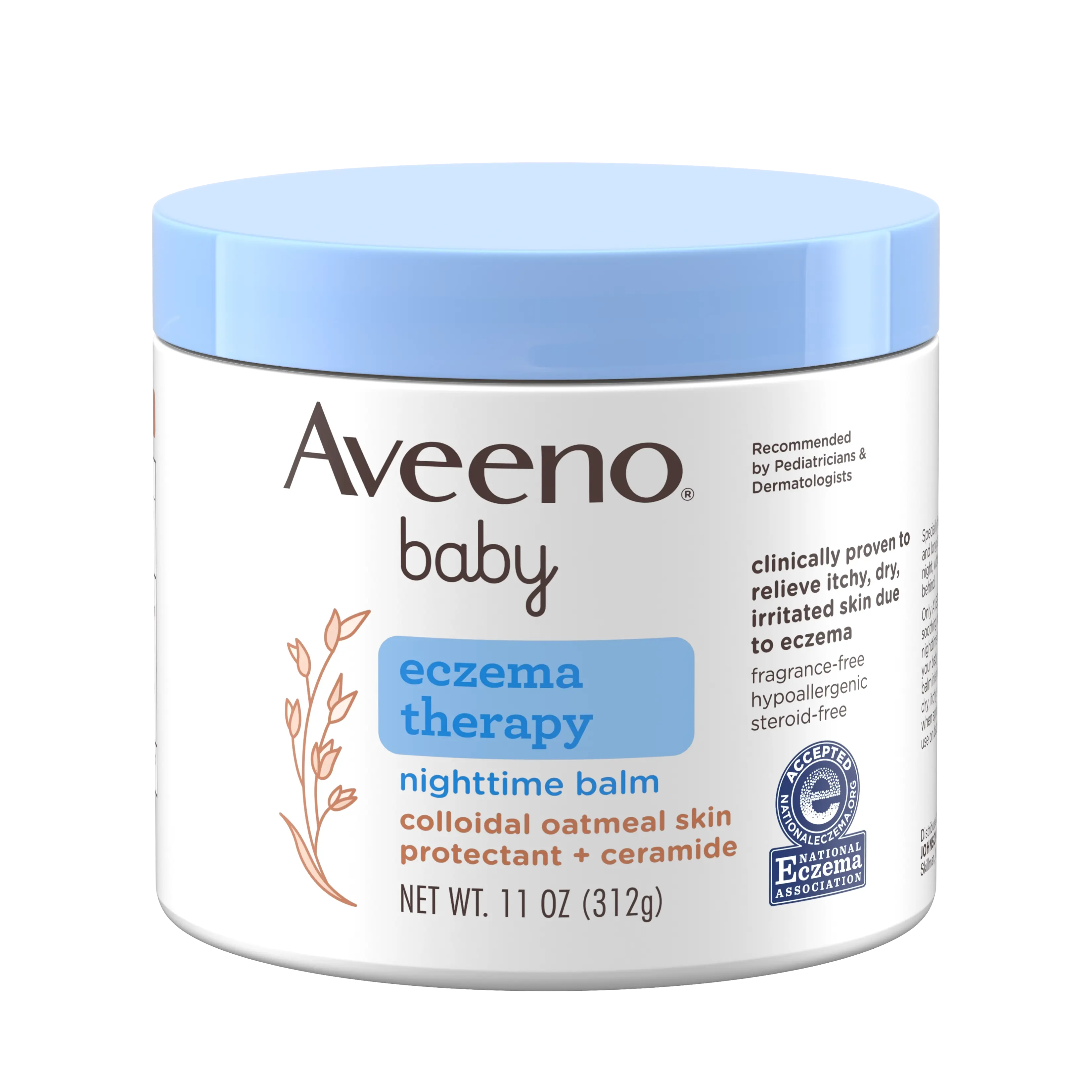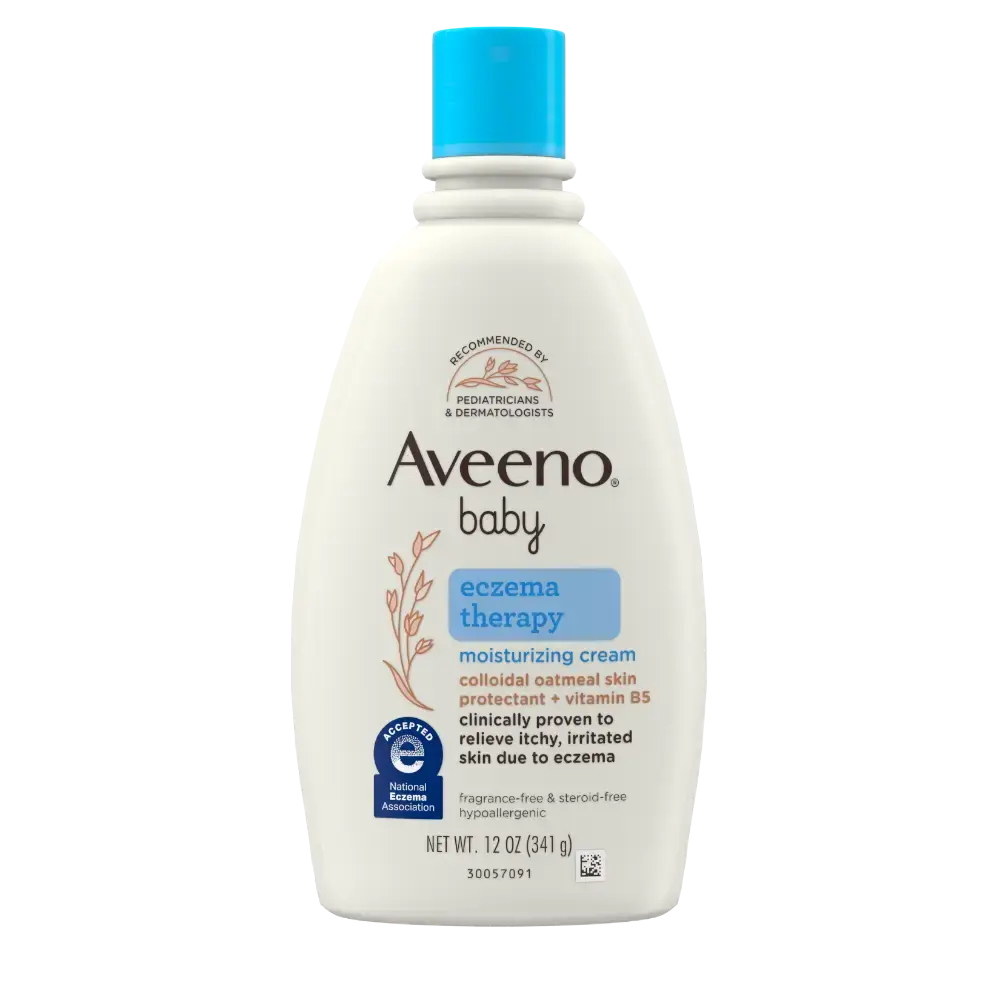Gentle Care for Baby Eczema
Up to 25 percent of babies and toddlers experience eczema. Learn more on how to help relieve eczematic skin with our clinically proven Aveeno baby eczema treatment.
What Is Baby Eczema?
Eczema is a skin condition that usually appears as an itchy, red patch on the hands, feet, backs of elbows and around knees, ankles and wrists. It also may affect a baby’s cheeks, chin, chest, forehead or scalp.
Eczema can appear in other areas too, though not usually the diaper area where moisture acts as a barrier. Dry skin, sweating, pet dander or even dust can cause a flare-up of your child’s eczema. Scratching also can make eczema worse, causing redness, swelling and other symptoms like itching.
Baby Eczema Triggers
Irritants
Many soaps, disinfectants and fragrances can make eczema worse for baby’s skin. Common products that may cause a flare-up include: detergents and dryer sheets; bubble bath and some shampoos; disinfectants like chlorine; dyes, and coarse fabrics like wool. Always wash new clothes before they are worn, use dye-free and fragrance-free detergents, and choose sunscreen made for sensitive skin.
Allergens
Typical allergens like dust mites, pet dander, pollen and mold can cause itchy, inflamed skin. Make your home an allergy-free zone by vacuuming and wet-dusting frequently, keeping soft toys (which trap dust) to a minimum and washing them often, and grooming pets regularly.
Environment
Extremes in temperature and humidity may trigger an eczema flare-up. Environmental triggers include very hot or very cold temperatures, high or low humidity, cigarette smoke and pollution. Keep the baby’s bedroom between 68 and 72° F and maintain even humidity in your home.
Food
It’s relatively rare in infants, but one in 10 children with eczema experience symptoms caused by food allergies. In general, children under age 5 with severe eczema also may have a food allergy, most commonly triggered by milk, eggs, nuts, seeds or wheat.
Stress
While stress doesn’t cause eczema, symptoms may worsen as the result of tension, anger or frustration. If your child is having problems at daycare, you may notice more eczema flare-ups than usual. Stress also can cause habit scratching, which perpetuates the itch-scratch cycle. In that case, keep your child’s fingernails short and consider cotton gloves or mittens if your child tends to scratch while sleeping.
Eczema Therapy For Baby & Toddler
AVEENO® Eczema Therapy treatment for babies & toddlers is clinically shown to help relieve dry, itchy, irritated skin with eczema. The formulas, either with Oat or Colloidal Oatmeal, intensely moisturize and help strengthen the skin’s natural barrier function to protect against moisture loss and helps prevent recurrence of extra-dry skin.
Eczema Equality
Eczema appears quite differently on different skin tones. We saw when parents searched for images, the results were almost all Caucasian babies. Visit our resource library to see how we created eczema representation on every baby’s skin tone.
Tackle Baby Eczema With Confidence
Don't see your question? Visit our FAQ page.
Skin Care Resources
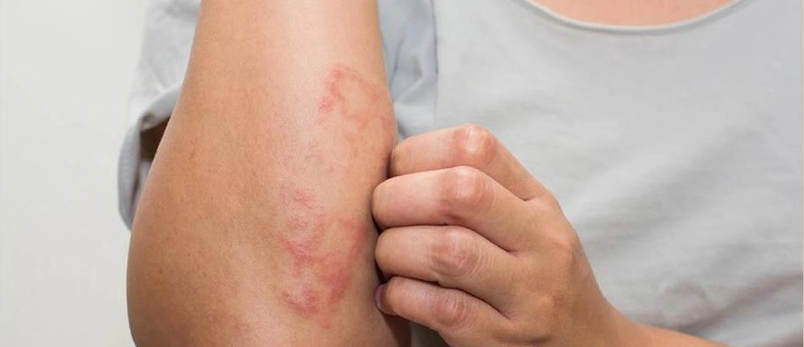
Living With Eczema As An Adult
Eczema is the name for a group of conditions that causes the skin to become red, itchy and inflamed. Stop the itch-scratch cycle with Aveeno eczema products. Learn the signs of eczema and how to help it.
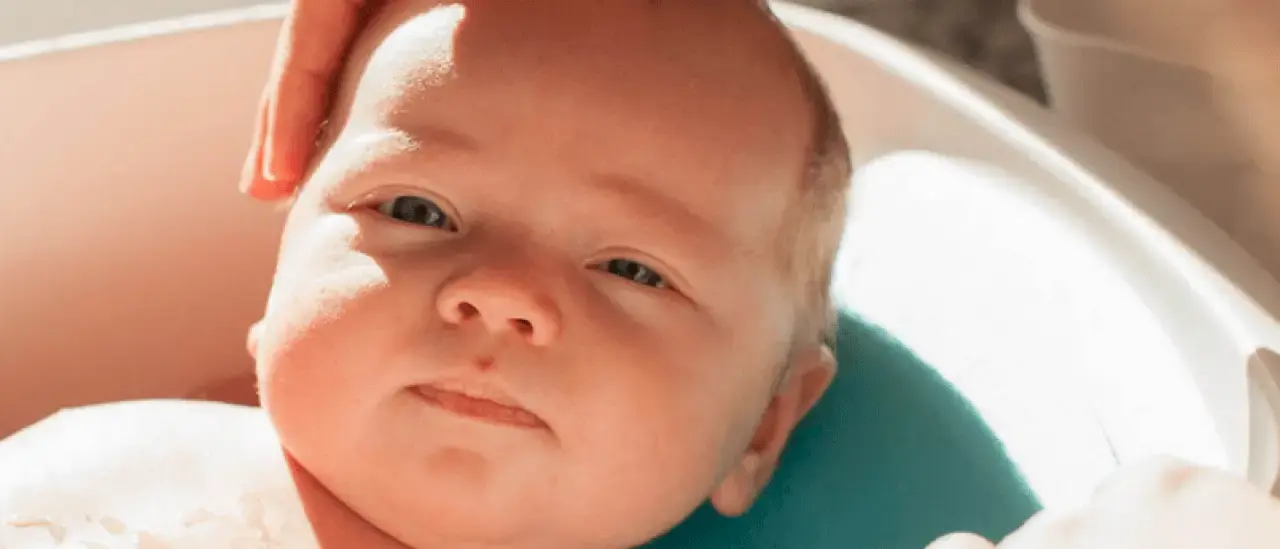
How to Identify & Help A Baby’s Dry Skin
Baby dry skin is very common, especially during the cold, moisture-deprived months of winter. Though it can be persistent and slightly bothersome for your little one, treating dry skin on babies requires a few thoughtful changes to your existing daily routines.
